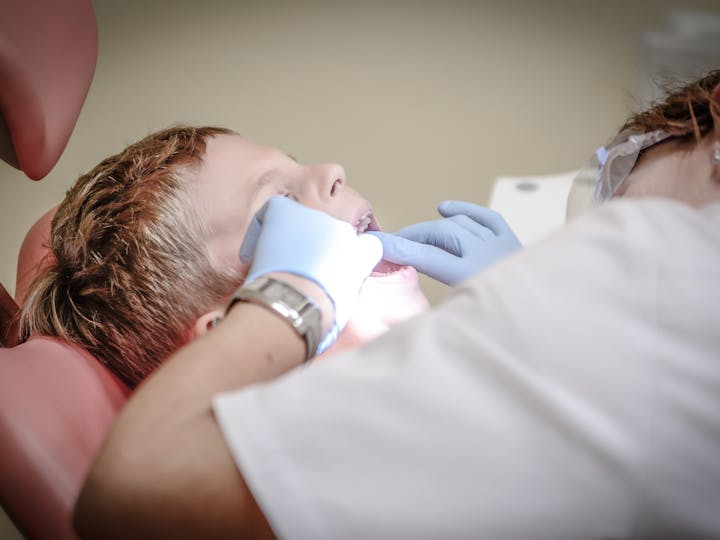How Dental Practices Build Patient Trust Through Tools, Communication, and More

Trust is at the heart of every successful dental practice. Patients aren’t only searching for treatment—they want reassurance, comfort, and genuine care. When they feel that trust, they return without hesitation, recommend your services, and follow treatment plans with confidence. Without it, even the best clinical skills may fall short.
But what really creates that sense of trust? It’s not just the dentist’s expertise—it’s also the little things patients notice, from the tools you use to the way you communicate. These details quietly shape how safe and cared for people feel in your chair.
So how can dental practices strengthen that trust every single day? Let’s look at the tools, communication methods, and patient-centered touches that make all the difference.
The Role of Tools in Building Confidence
Dental care is deeply personal. Patients often feel nervous when sitting in the chair, and what they see around them shapes how safe they feel. Clean, modern, and professional tools immediately signal a commitment to high standards.
For example, hygiene products play a huge role in building trust. A practice that invests in advanced solutions demonstrates that patient well-being is a top priority. Tools like Optim interdental brushes are more than just instruments—they reflect a promise of thorough care and attention to detail. When patients notice these investments, they feel reassured that their treatment is both safe and effective.
Beyond brushes, other visible upgrades, such as advanced sterilization systems or digital imaging equipment, also shape confidence. Also, these days it is easier to get them through online platforms, such as DD Group. You can search for the equipment or tools and place an order to get doorstep delivery at your clinic.
Patients recognize when a clinic keeps pace with innovation, and that recognition makes them more likely to believe in the quality of the care provided.
Communication as a Core Care Tool
Trust also depends heavily on how well you communicate. Many patients fear dental visits because they don’t know what to expect. Clear explanations about procedures, recovery steps, and treatment options reduce anxiety and help them feel in control.
But communication doesn’t stop in the chair. Appointment reminders, follow-up messages, and educational content all build a sense of reliability. Patients see that you are not just providing treatment but guiding them through every stage of care.
Technology makes this even stronger. Automated reminders ensure patients never miss checkups. Secure messaging apps allow quick answers to concerns between visits. Even simple tools like post-treatment surveys help patients feel heard.
When clinics adopt digital communication strategies, they show patients that their voice matters. This consistency transforms the relationship into something more personal and lasting.
Tools and Communication Work Best Together
While tools ensure clinical quality, communication ensures emotional comfort. Neither can stand alone. For instance, introducing a new hygiene tool works best when patients also understand why it matters.
Explaining how advanced brushes, sterilization systems, or modern imaging devices improve outcomes builds both confidence and cooperation.
Consider a patient who notices upgraded equipment during their visit. If the dentist takes a moment to explain how it enhances accuracy or hygiene, the patient feels more reassured. Visible tools paired with clear dialogue create trust that lasts beyond the appointment.
Creating a Patient-Centered Experience
Trust grows when patients feel heard and valued. Combining tools and communication helps create that experience. For example:
- Using modern tools shows respect for safety and quality.
- Explaining procedures reduces fear and increases confidence.
- Following up after visits demonstrates care beyond the chair.
Even small steps, like sending a personalized reminder before a visit or calling to check in after treatment, signal genuine concern. Over time, these touches build loyalty that no marketing campaign can replace. Patients who trust you become advocates, sharing their positive experiences with others.
Why Trust Matters for Growth
In dentistry, trust is not just emotional—it’s practical. Patients who trust their providers are more likely to:
- Schedule regular checkups.
- Follow treatment advice.
- Recommend the practice to friends and family.
Trust also protects practices in competitive markets. With so many options available, patients choose providers who make them feel safe and understood. Tools and communication together create that environment.
Think of it as a cycle: patients who trust your practice keep coming back, which stabilizes revenue and supports growth. That stability allows you to reinvest in better equipment and better communication systems—further strengthening patient relationships.
Final Thoughts
Dental practices thrive when patients feel cared for, both clinically and personally. Professional tools reassure them of quality. Clear communication reassures them of compassion. Together, these elements form the foundation of trust.
By investing in the right tools and prioritizing open dialogue, dental professionals can strengthen relationships that last for years. Trust isn’t built in a single appointment—it’s built through every detail, from the equipment on display to the words spoken during care. And when trust grows, so does the practice.
